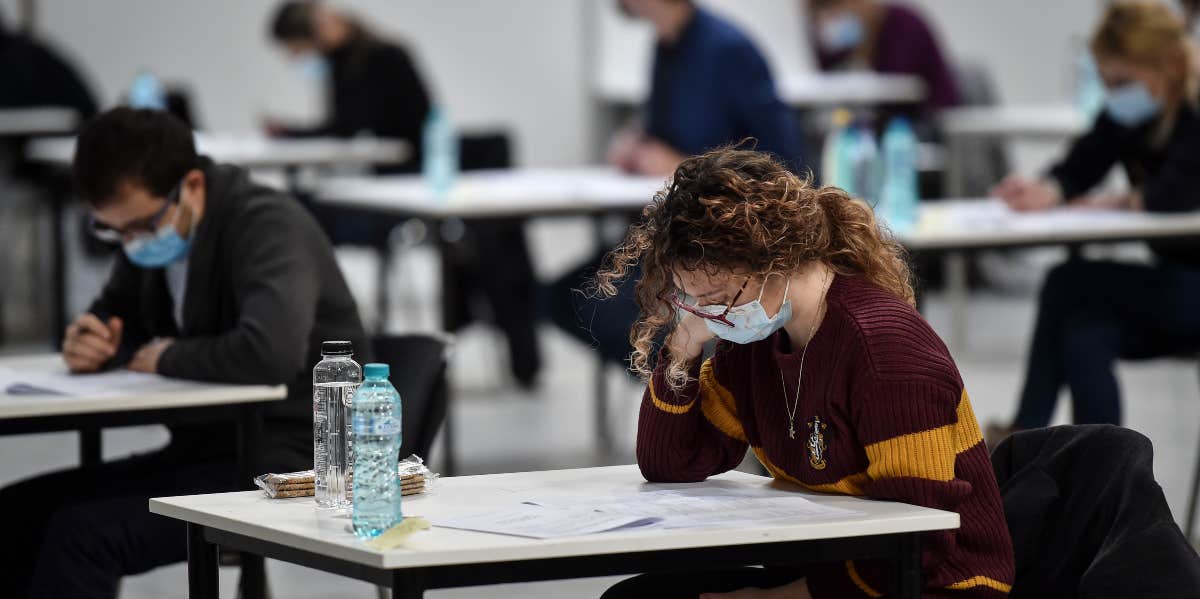Study Finds Many People Who Recover From COVID-19 Suffer An IQ Loss
COVID-19 has more impacts than we think.
 roibu / Shutterstock.com
roibu / Shutterstock.com As we continue to learn more about Covid-19, a research paper published by The Lancet reveals that there can be significant cognitive consequences to catching the virus.
With an increase in reports of people suffering from ‘Long Covid’ — meaning that some symptoms and effects persist even after having ‘recovered’ — the study aims to confirm the severity of ‘Long Covid’s’ effect on the brain.
Does COVID-19 impact IQ?
According to this United Kingdom study, yes. Researchers tracked significant IQ reductions amongst some participants who had suffered with COVID-19.
Researchers examined at the cognitive performance data from 81,337 people who took the Great British Intelligence Test between the months of January and December in 2020.
They also filled out questionnaires in order to capture self-reports of suspected and confirmed Covid-19 infections.
Of the 81,337 participants, 12,689 individuals indicated that they had either confirmed or suspected COVID-19 infections, with varying degrees of respiratory severity.
This is a large dataset that spans a large cross-section of the general population from the first wave of the UK. Participants varied across age groups, sociodemographic and ethnic backgrounds.
COVID-19 was not mentioned during the promotion of the study in order to remove any sampling bias.
The study claims COVID-19 survivors suffered an IQ loss.
Participants who had survived the virus suffered varying degrees of cognitive effects that appear to worsen based on the severity of their infection.
Those who recovered from symptoms that did not involve respiratory problems were reported to have a standard deviation of around -0.19.
Those who suffered from Covid-19 and had to be put on a ventilator in the hospital had a -0.47 SD.
To put it into perspective, they report says “the 0.47 SD global composite score reduction for the hospitalized with ventilator sub-group was greater than the average 10-year decline in global performance between the ages of 20 to 70 within this dataset.”
As a comparison, a 0.47 SD equates to a 7-point difference in a classic IQ test.
The researchers speculate that high fevers and respiratory issues may have contributed to the cognitive decline. However, only 4.8% of participants reported having these lingering symptoms at the time of the test.
The research requires further examination.
The research is not without its faults, but it is the largest of its kind to be performed at this time and the results are striking.
Towards the end of the study, they mention that “further work is required to interrelate the deficits to underlying causes, e.g., neurological changes, fatigue and apathy,” but this is a good start for understanding how it may affect post-pandemic recovery challenges.
Isaac Serna-Diez is a writer who focuses on entertainment and news, social justice and politics.

